What factors influence our weight? How much of our weight management is actually in our control? In this blog post we will discuss what’s called the “set point weight theory”, how it can help you to stop micromanaging your weight, and how you can finally find food and body freedom for life.
Where Did The Idea Of A “Set Point Weight” Come From?
I first learned about the idea of a “set point weight” when I started my intuitive eating journey and then subsequently read (well, listened to on Audible) the book Health At Every Size. Now this is an ENTIRE book that talks about this stuff so in this blog post we’ll cover what I feel are the “basics” but know that there is SO much more where this came from so I’d highly recommend you snag yourself a copy or listen to it like I did!
Okay, let’s dig in it!
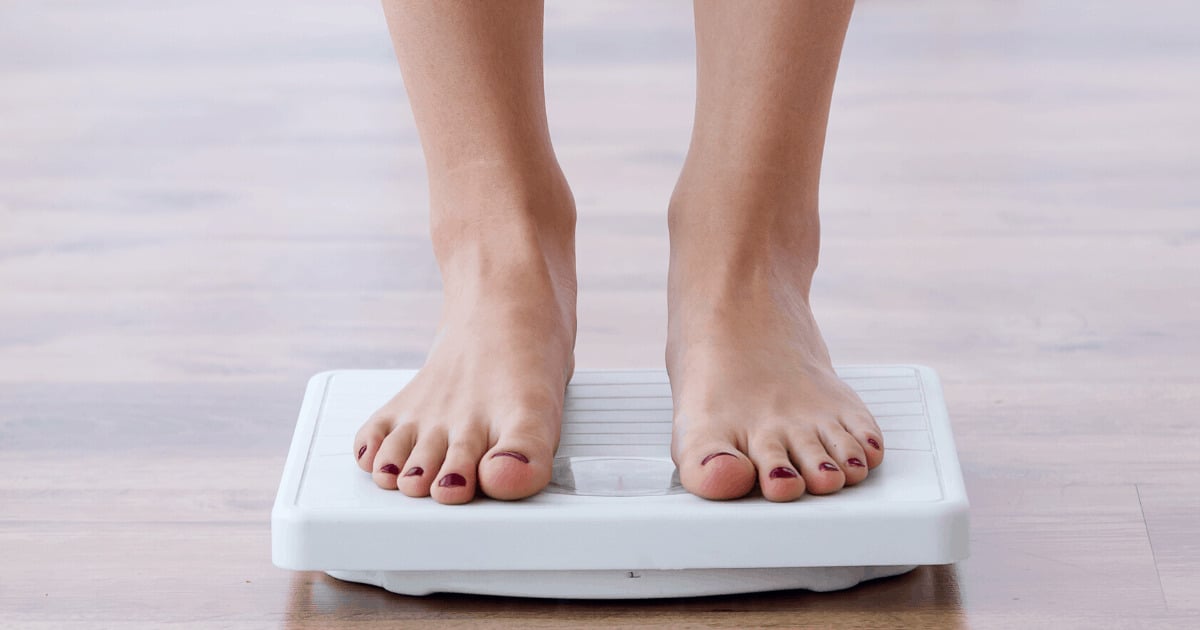
What Is A Set Point Weight?
Essentially, a set point weight is the weight that our bodies want to be at in order to function optimally and feel best. It’s the weight that our bodies can maintain effortlessly- no micromanaging, counting calories, weighing food, etc!
One important point to note is that our “set point weights” are actually more of a set point range. Most scientists state that this weight range can be 10-20lbs however this is unique to every individual so take those numbers with a grain of salt. The point is: it’s not a static number.
Our set point ranges can also change throughout our life. So just because you were able to effortlessly maintain one weight in your, say, 20’s doesn’t mean that will be your set point weight in your 30’s, 50’s etc. Our bodies change with life and so can our set points.
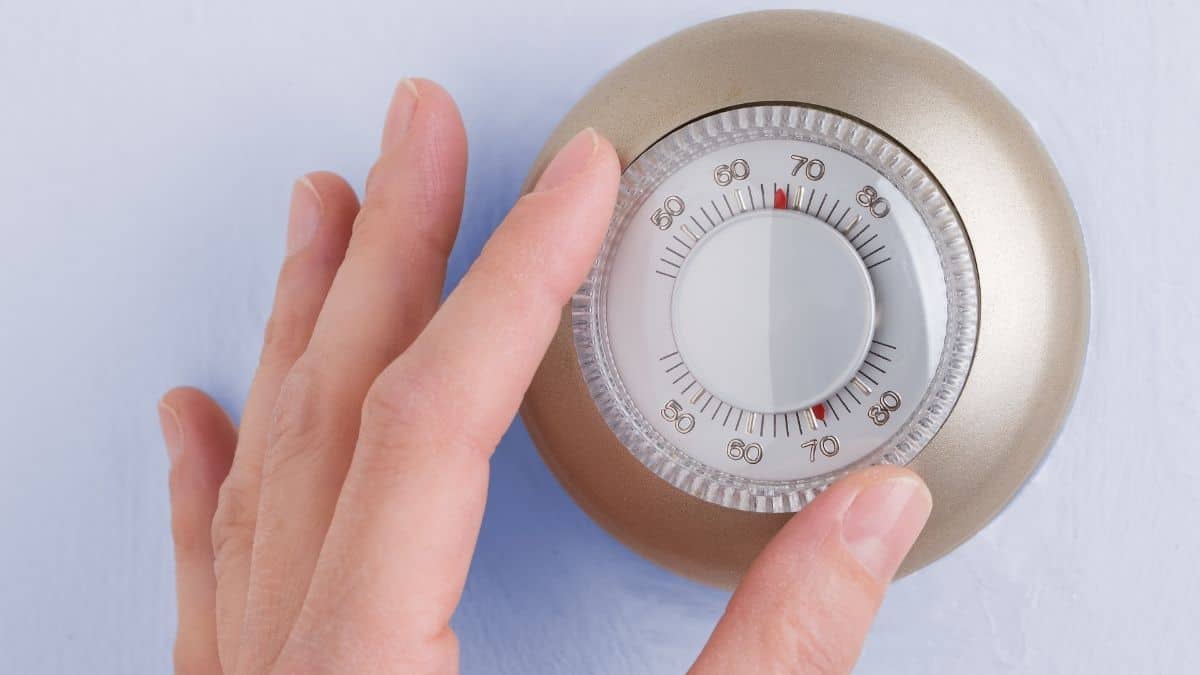
Think of it this way: you know how a thermostat fights to keep your house at the same temperature? Well, that’s essentially how a set point weight (rather, range) works. Your body doesn’t want to be below it, it doesn’t want to be above it. It wants to be at it, what it sees as the “sweet spot”.
Here is an example from the research: one hallmark study, The Minnesota Starvation Experiment, which essentially put participants on a restrictive diet (similar to many fad diets today, actually) found that some overshot their pre-starvation weight (i.e. their set point weight) by up to 145% when they came off of the dieting phase and were allowed to eat normally again. However, over time their weights settled back within 5% of their pre-starvation weight. This is said to be due to that internal weight thermostat I just described.
Need another example? Remember that show the biggest loser? While, yes, many contestants initially lost a lot of weight when they did a follow up study many of them regained some or all of the weight. This is not a lack of willpower but rather their bodies fighting to maintain a set point.
What Determines Our Set Point Weight?
Our set point weights are determined by a variety of aspects including genetics, biology, lifestyle, environment, etc. It’s a dynamic, complex balance between all of these things! What I’m going to explain here is just the tip of the iceberg, so again I’d recommend the book Health At Every Size here for more on this!
How Genetics Impacts Our Set Point Weights
This part is totally out of our control. Just like we can’t control our hair color or shoe size our body has a predetermined (to an extent) size. To put it simply, think of it this way: a German Shepard and a chihuahua are both dogs but they’re totally different in their size and shape. Same thing with us humans.
Obviously the big difference here is that we accept both of those types of dogs as a society. However we’re not as accepting with body shapes and sizes due to the unrealistic standard of beauty we’re faced with.
This piece of the set weight theory is something we can not change. Humans will have different builds, shapes and set point weights due to genetics. We must let go of those unrealistic, unattainable standards of beauty we are holding ourselves to.
How Environment & Lifestyle Impact Our Set Weights
If you’re thinking “Okay this all sounds great but I don’t think my body has that thermostat” then this section is for you.
How we live our lives can impact our weight, absolutely. For example, things like stress, anxiety, busy lifestyles and depression can cause us to listen less to our bodies (such as eating emotionally, restricting food as a way to feel a sort of control, etc.) and also cause fluctuations in our hormones that impact our hunger, fullness and drive to eat.
What is going on in our life and what stage we are at in the life cycle can also impact it. For example, set point weight may change like I mentioned with natural aging or with life stages such as before and after having children. The body may feel the need to have more or less reserves energy at one point or another.
These outside factors CAN cause you to deviate from your set point range (above or below it) however it’s likely not going to be long term. It’s unlikely that these non-genetic factors will cause any extreme, permanent set point weight fluctuations. We know this from the numerous studies that have been done on weight regain after dieting (which we will talk about more in a minute). This isn’t you failing the diet, it’s the diet failing YOU and your body fighting to return to it’s set point weight.
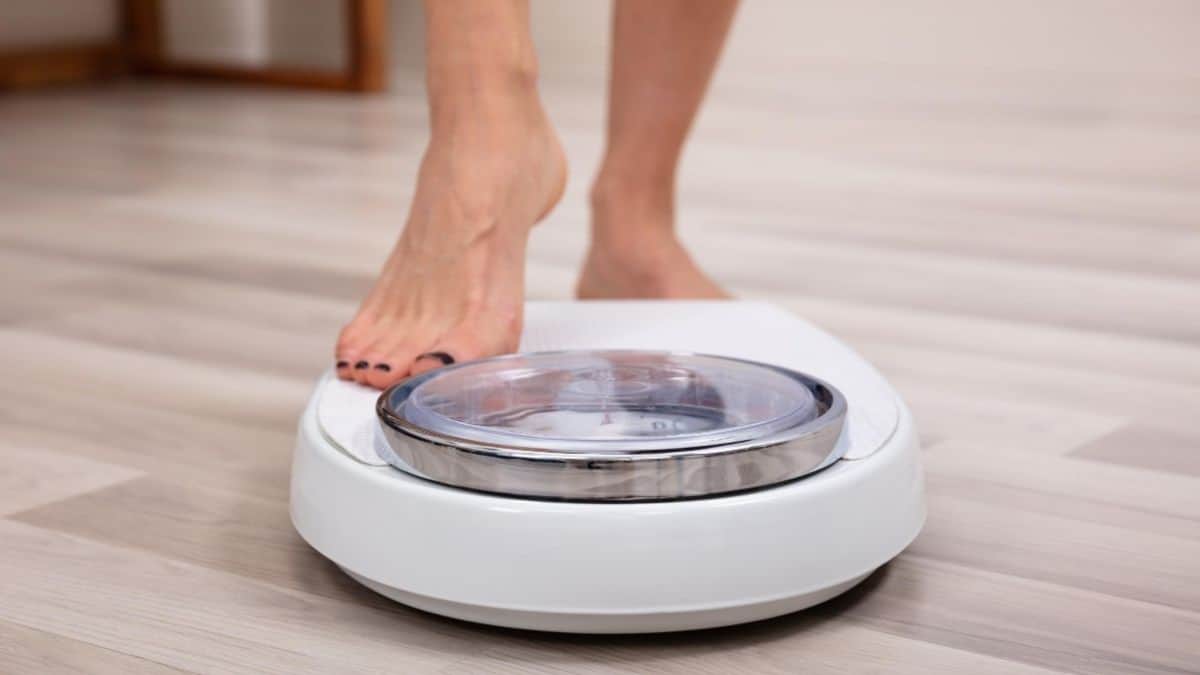
How Hormones Impact Our Weight
While there are a lot of systems at play that work to regulate our energy intake, appetite and weight two of the MVP’s are the hormones ghrelin and leptin. Ghrelin is known as the “hunger hormone” and leptin the “fullness hormone”.
Leptin is secreted from fat cells, so when fat cells reduce, leptin reduces and in contrast ghrelin increases, giving you the urge to eat. This is your body fighting to get back to that set weight.
Now, what a lot of people ask is “Well, if I have more fat cells shouldn’t I have more leptin and therefore less drive to eat?” What can happen when we continually ignore our body’s cues (such as eating emotionally, eating past fullness or using food as a coping mechanism) is that we can become leptin resistant. This isn’t an issue of your body’s leptin production but rather the brain’s response to it.
The body is much better at being sensitive to not enough leptin (fighting to increase weight) than it is to too much leptin (fighting to decrease weight). Due to this, one’s weight may continue to increase beyond it’s set weight if this is the only appetite regulation mechanism (biological fullness cues) that one is listening to.
But here is the deal: hunger hormones and listening to just the hunger and fullness cues we typically think of (such as a grumbling stomach, not having an appetite, etc) is just ONE aspect of our body’s natural energy regulation mechanism. Leptin resistance or continually ignoring your bodies natural hunger and fullness signals does NOT mean that you should think “Well, shoot… There is no chance that I can regulate my own energy intake so I might as well diet!” This is probably the MOST counterproductive thing that you can do. Dieting to lose weight and again ignoring your natural regulation mechanism is likely going to cause your body to fight even harder to increase it’s weight.
Instead, work WITH your body to find it’s natural set point weight. This means learning to listen to it. Learning to honor it. And finding peace with your body and learning to accept that due to those genetic components many humans will never be a size 2 but it can still be healthy and feel good. Checkout my blog post on HAES (health at every size) for more on the weight & health equation.
Additionally, a few other hormones, like cortisol (the stress hormone) can also impact our weight. Cortisol can slow ones metabolism and favor fat storage and in turn impact weight. Cortisol can also cause you to be more likely to eat emotionally (hello stress eating!) also impacting weight. So, focusing on stress management is key to our bodies overall functioning and allowing that internal weight thermostat to do it’s job.
Other aspects that help you regulate your body’s natural energy needs include noticing other satisfaction cues (feelings of fullness, changes in taste, recognizing emotions, etc), stabilizing blood sugars, getting adequate sleep, etc.

How Our Set Point Weight Changes
Like I mentioned there are a variety of factors that play a role in our unique set point weights. However one of the biggest reasons our set point weight changes, specifically how they increase, is due to dieting.
Our bodies want to stay at that predetermined set point weight and when they notice that weight is being deviated from it will fight to get back to that place. So, when we diet and lose weight, dipping below our set weight range, our bodies think “My goodness! I’m being starved!” and in order to work to get back to that set weight and then protect from another potential future starvation (i.e. diet) it packs on a little extra to kind of play offense and to be prepared.
At the same time when our bodies sense a shortage of energy they’ll likely “turn off” other areas of normal bodily function to conserve energy. One example is loss of our irregular periods (if you’re experiencing this checkout my blog post on how to get a healthy period back), fatigue, inability to regulate body temperature (i.e. being cold all of the time), loss of/breaking/lackluster hair, skin and nails, etc.
Our bodies don’t know that WE are the ones causing the deprivation due to our dieting efforts. It just knows that something is wrong and protection is needed. So, it works to pack on pounds with a few extra to be prepared for if another energy deficit happens in the future. Yes, to protect you! This could also contribute to that leptin resistance winding up in the diet doing more “damage” than good.
Our bodies, specifically the hypothalamus of our brains, are less concerned with preventing weight gain than it is at preventing weight loss. So, it works harder to bring you out of a state of deprivation (i.e. diet) than it does at preventing you from eating in excess. So, the more than one yo-yo diets the more likely they are to have their weight “creep up” and cause an increased set weight.
I talk more about the science behind this phenomenon in my blog post “12 Reasons NOT To Diet”.
How To Know If You’re At Your Set Point Weight
Finding your set point weight is truly a leap of faith. It goes against everything that we’ve been taught to believe by diet culture (that we should try to control and shrink our weights as much as possible) There is truly no way to know what your exact set point is or how long it will take to get there.
Some say that you can guess your set point weight by thinking about what weight you return to between diets, when you are really listening to your body (but honestly how many of us even know how to do that anymore after years of dieting?!) I’d caution using the “weight you return to” as a benchmark and really take that with a grain of salt. We can’t TRULY know but answering these questions may be able to help you determine if you’re NOT at your set point weight:
- Is it hard for you to recognize your hunger and fullness cues?
- Do you eat past fullness often, feeling stuffed at the end of a meal?
- Do you go through periods of restricting food and then eating in excess?
- Do you often skip meals and then find yourself having one meal where you continually eat past fullness?
- Do you eat to cope with emotions like stress, anxiety, or boredom?
- Are you always bouncing back and forth between diets or plans to lose weight or be “healthy”?
- Do you feel like you’re always thinking about food and obsessing over it?
- Do you plan your meals day(s) in advance to ensure you’re being “good” with your eating habits?
- Has your period stopped or become very light or irregular?
- Do you find yourself overexercising to “burn off” what you’ve eaten?
- Do you feel like you’ve lost all hunger and fullness cues?
If you answered “yes” to these then it might be a sign that you’re what’s called a “restricted eater” VS an “unrestricted” or intuitive eater. Restricted eaters are more likely to NOT be at their set point weight.

How Can I Find My Set Weight?
Finding your body’s unique set point weight is a process and not something that will happen overnight. I mean, we didn’t lose sight of our natural ability to regulate our energy intake over night. As babies we were born with this ability (cry when we are hungry, turn our cheek away when full) but as we grow up and are exposed to diet culture we lose that ability as we began to pursue unrealistic standards of beauty.
Three things can happen when you work to find your set point weight: weight gain, weight loss, and weight maintenance. It IS possible to be above your set point weight. I feel like this one gets a little confusing with the leptin/ghrelin discussion we had above but remember that’s only ONE part of our energy regulation.
Many people also ask how this is possible. I mean our bodies sense a deficit so they pack on pounds, right? How would anyone ever lose weight? What if I get sick and can’t keep food down? Would my set point weight increase?!
Cool your jets, gorgeous. When we talk about the whole “lack of enough energy” thing we’re typically speaking more in terms of dieting and weight cycling. Normal fluctuations in intake (extra snack here, eating more than usual on vacation, maybe less if you’re feeling under the weather) is NORMAL. I’m talking more about when you go on that juice cleanse that Gwenyth is promoting in Insta then follow it with whatever the latest unrelatic, unsustainable, life sucking, restrictive (… should I go on?…) diet trend of the moment is. It’s not about the smaller or static changes- it’s about the cycling. The up and down.
Here are a few tips that can help you get started with finding your set point weight:
Tip #1: Stop Restricting
The number one thing to do is to stop restricting food and get rid of self-imposed limits be it types, amounts or timing of foods. As we’ve mentioned this will only keep you further from finding your body’s natural set point weight and disrupt your hunger hormones and appetite regulation.
I have an entire blog post on how to identify and break your food rules. This is the exact process that I teach to members inside of The SociEATy. And, if you’re worried about how eating “healthy” (or more nutrient dense as I like to call it) to still promote health fits in checkout my blog post on gentle nutrition.
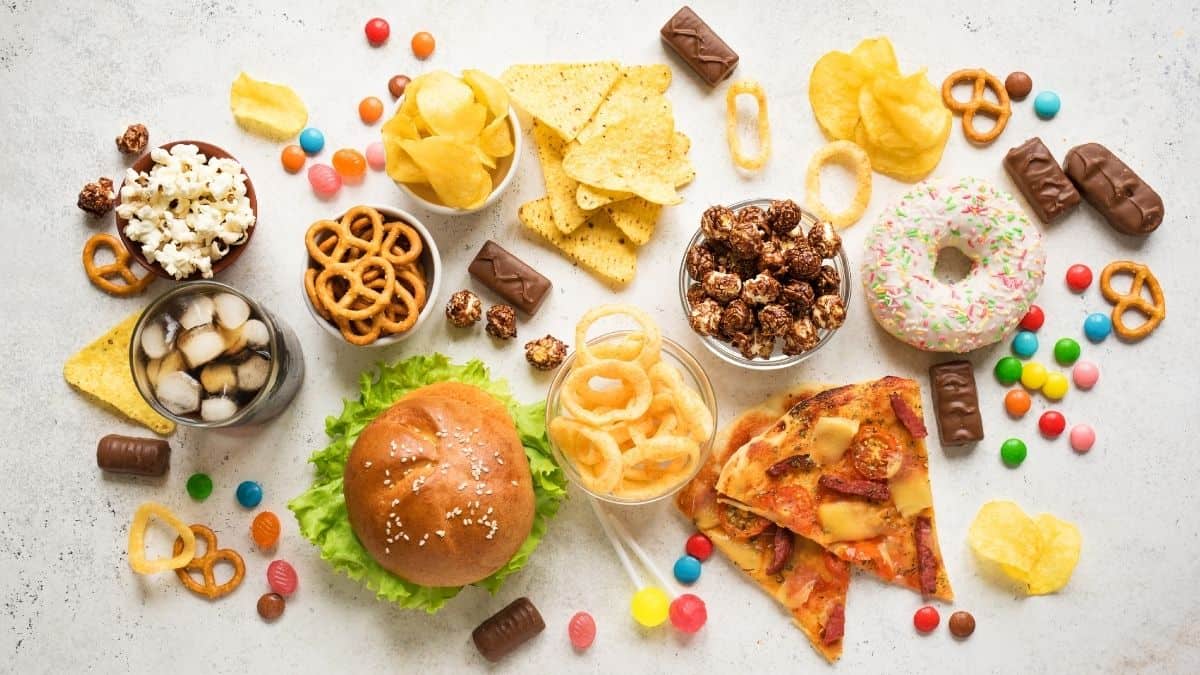
Tip #2: Ditch The Scale
As someone who used to weigh themselves multiple times a day and was terrified of that number changing I can say with full empathy that I get how hard this is. But, what you can’t do during the process of finding your set point weight is set a limit or cap on how much you’re willing to gain.
In this we also need to reject the unrealistic standards of beauty we are striving for. This is probably the hardest part of finding your set point weight. It’s not easy. We focus on this a lot in The SociEATy non-diet community and you can checkout my blog post on overcoming negative body image for more tips on this.
I have a whole blog post that explains the intuitive eating weight gain process but to sum it up I kinda recommend that everyone EXPECT some sort of weight fluctuation at the beginning of the process. This is due to what some refer to as the “honeymoon phase” where you finally stop restricting food and allow yourself unconditional permission to eat.
If you’re like “Colleen.. But I NEED to lose weight!” Checkout my blog post on weight loss and intuitive eating as well as my blog post on HAES (health at every size) that I mentioned earlier! To sum this one up for you: weight does not equal health. Health promoting behaviors improve health. Implementing those (adding fruits and veggies, moving your body in ways that feel good, staying hydrated, etc.) may or may not change your weight depending where you are at in relation to your set weight but it’s not the GOAL.
Tip #3: Focus On Body Attunement
A lot of people say “listen to your body” and I agree. BUT… I think this gets misinterpreted a lot. What people take from this statement is “listen to my hunger and fullness” when in reality it’s SO much more than that! Body attunement is about paying attention to, yes, hunger and fullness, but also satisfaction, emotions, thoughts, etc. This is why that leptin resistance we chatted about earlier is NOT a final verdict that you can never listen to your body- it’s only one aspect!
For example, did you know that as you eat a meal a subtle fullness and satisfaction cue is that the meal actually tastes less delicious the more you eat? Yep! But you have the be attuned to your body to notice it. Attuned to all it’s senses! If you’re JUST focusing on that hunger and fullness you might miss that piece.
Another example would be becoming attuned to what foods you find satisfying. It’s super common after following food rules and dieting to not know what you like to eat and find enjoyable. There is a difference between being full and being satisfied.
Here is an example: say you have a big plate of cauliflower rice. (Because, well, society total (wrongfully) demonizes carbs) By the end of the meal you might FEEL full but wind up in the pantry 20 minutes later looking for something more to “hit the spot”. Then, you’re left feeling frustrated because you downed half a box of girl scout cookies and are now OVERLY full.
When you focus on what you find satisfying and implement some gentle nutrition you’ll learn that adding some carbs (Like real rice! It’s fab. Try it.), maybe some delicious flavors like garlic or ginger, and a little cashews on top for some crunch you’re WAY more satisfied. And there is no sneaking into the pantry and feeling embarrassed when your significant other finds you with thin mint crumbs all over your face.
You’d probably end up eating MORE in the first scenario than your body truly needs, contributing to further deviating you from your set point weight. I have a whole blog post with some of my favorite mindful eating exercises that can help you get started with this!
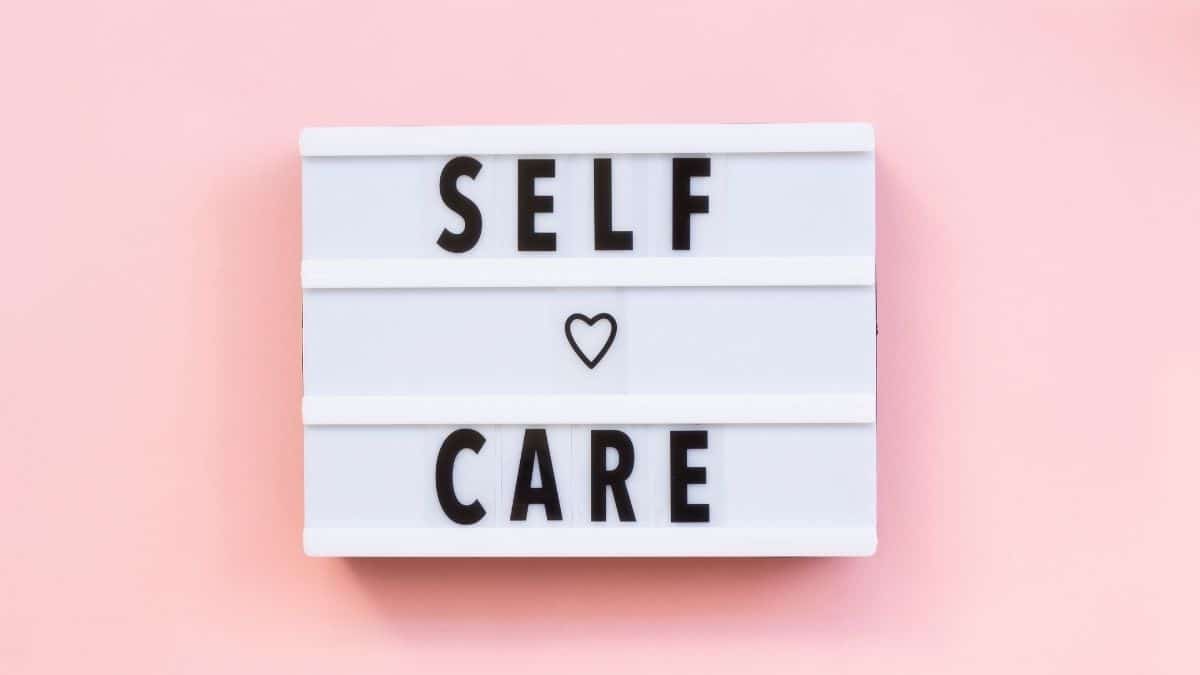
Tip #4: Practice Self-Care
Okay this one sounds cheesy, I know, but it’s true. One of the big reasons we struggle with food is not out of a place of having a problem with food… rather a problem with self-care. I’m pretty sure they said this in the HAES book and I was like, WOA… that was deep. And TRUE.
Much of the time we focus on weight and food to fulfill a need. A need for control. A need to cope with emotions. Etc. Focus on what you’re TRULY searching for and needing. Focus on your quality of life. Focus on others. This is where you start to separate your self worth, your determination, and your all-encompassing desires from weight loss.
Then there is also the fact that stress actually causes biological changes in our body that can favor weight gain and fat storage, like we talked about earlier. Your body may fight to increase it’s energy reserves because it senses the stress as a danger.
And when I talk about self care I don’t always mean bubble baths (although those are great!) I mean resting, managing stress, allowing yourself to feel your feelings and work through them.
How To Know If You’re At Your Set Point Weight
If you’re wondering if you’ve found your set point weight ask yourself these questions:
- Do you listen to and respond to your body’s hunger and fullness cues?
- Do you find yourself not fixating on weight or food habits, but keep a relatively stable weight?
- Do you feel calm and stress and anxiety free around food?
- Do you find yourself having more mental space for other things besides nutrition information?
- Do you implement gentle nutrition in a way that feels good but don’t obsess over it?
- Do you move your body in ways that you enjoy but not use exercise to “earn” or “burn off” your food?
These are signs that you may be at your body’s set point weight.

Can I Change Or Lower My Body’s Set Point Weight?
I couldn’t possibly write this blog post without addressing this topic, so let’s do it. We don’t have strong evidence at this time that we can change our set point weights.
We know from lots of research that we can lose weight in the short term but it’s typically regained over time (the set point weight theory at work). But, remember, the set point weight is a range of up to what most say to be 20lbs, so fluctuation in this range can be normal.
A Final Note On Our Weights
I know it’s easy to read this and start to become obsessed with where you’re at in relation to what your set point weight is or what it might be but I’d strongly encourage you not to do that. From my own experience and from the many women that I’ve chatted with inside of The SociEATy when you stop becoming obsessed with it and truly focus on the more important things in life is when you find it. Focusing on it will likely hold you back.
If you’re feeling this way I’d recommend not feeling ashamed about it at all (society teaches us to obsess over it) but rather leaning into it and asking “Why does my weight matter to me so much?” Then doing some work around your beliefs about weight, weight stigma, fat phobia, etc.
Bottom line here: your body’s got your back. But it DOES take work to listen to it. It IS a complex dance of all of those factors such as genetics, lifestyle, etc.
So, what do you think about the set point weight theory? Comment below with your thoughts, I’d love to hear from you!
XOXO
-Colleen
PS. Don’t forget to save your seat for the free 5 day find your set point weight challenge! Learn more and sign up here!




Jamilatu Abubakar says
I’m in.
Colleen says
XOXO!
Noree says
I’m in!!
Colleen says
YAAAAY!
Abigail Sorensen says
I’m in! Can’t wait!
Colleen says
I can’t wait either, Abigail!
Bri Fine says
I’m in!
Colleen says
Yay, Bri!
Dana says
I’m in !
Colleen says
Yaaaaas Dana!
Pauline says
I’m in
Colleen says
Yay!
Hannah Flack says
I’m in!
Colleen says
XOXO!
Brittania says
I’m in! 😀
Colleen says
WAHOOOO!
Elaine says
I’m in
Colleen says
Yay!
Joslyn says
I’m in!! Thank you for digging deeper and helping us find the balance between freedom and health.
Colleen says
I’m so glad! And it’s my pleasure to help! Food freedom is amazing and I can’t wait for you to experience it in a way that makes you feel great mentally and physically!
Maria says
I’m in!
Colleen says
So glad!
Lorna says
I’m in!
Colleen says
YAY!
Jenn Palandro says
I’m in, 💯 🎉
Colleen says
YAY!
Liliane says
Im in!
Colleen says
Yay!
Steph says
What does/ could it mean if you answered “yes” to some of the questions in the “above set wieght” section and “yes” to some of the questions in the “below set weight” section?
Colleen says
It’s not uncommon for people to have NO clue where they may land after years of dieting. So many don’t know but your weight will fall where it feels best!
Courtney Toledo says
I’m in!
Colleen says
Yay!
Stephanie says
I’m in
Colleen says
YAY!
Venus says
I’m in
Colleen says
Woohoo!
ST says
Im in!!
Colleen says
Amazing!
Krista says
Count me in too!!!!
Colleen says
WOOHOO!
Kristin T Stephenson says
I’m in tears and I’m in.
Colleen says
Sending you a virtual hug!